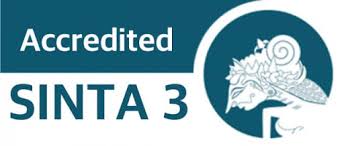The Role of Learning Communities in Developing Teacher Competence
DOI:
https://doi.org/10.52366/edusoshum.v5i1.192Abstract
This study aims to determine the role of learning communities in developing teacher competencies at SMP Muhammadiyah 1 Balikpapan. The type of research used is qualitative descriptive research with a case study method. Data collection techniques through interviews, observations and document studies. The results of the study indicate that learning communities that are routinely implemented in schools provide positive changes to teacher competencies that have an impact on the learning process of students. Active and enjoyable learning will certainly affect the motivation and activeness of students in participating in learning. Learning communities are also a place for professional and character development for educators to be more active, creative and confident. The findings indicate that active involvement in such communities significantly contributes to improved instructional practices, increased self-efficacy, and stronger professional identity. The study concludes that learning communities serve as a vital component in teacher professional development and recommends institutional support for their sustainability.
References
Ajzen, I. (1991). The theory of planned behavior. Organizational Behavior and Human Decision Processes, 50(2), 179–211. https://doi.org/10.1016/0749-5978(91)90020-T
Arifin, J., & Hanif, M. (2024). School learning community program management to improve teacher pedagogical competence. Ideguru: Jurnal Karya Ilmiah Guru, 9(3), 1421–1432. https://doi.org/10.51169/ideguru.v9i3.1112
Cliffs, A. B.-E. (1977). Social learning theory. https://doi.org/10.37196/kenosis.v4i2.67
Falletta, S. (1998). Evaluating training programs: The four levels (D. L. Kirkpatrick). The American Journal of Evaluation, 19(2), 259–261. https://doi.org/10.1016/S1098-2140(99)80206-9
Ferayanti, M., Nissa, H., Kurnianingsih, S., Irfan, R., & Patria, H. (2023). Guidelines for optimizing learning communities (Implementation Team of Merdeka Curriculum, Ed.). Directorate General of Teachers and Education Personnel, Kemendikbudristek.
Giyanto, B., Kurnia, P., Julizar, K., Sari, D. K., Hartono, D., & Stia, P. (2023). Implementation of learning community policy in the Merdeka Curriculum in Indonesia. Jurnal Pembangunan dan Administrasi Publik, 5(2). https://jurnal.stialan.ac.id/index.php/jpap/article/view/690
Giyanto, B., & Pradina, H. (2023). Implementation of learning community policy in the Merdeka Curriculum in Indonesia. Jurnal Pembangunan dan Administrasi Publik, 5(2).
Hakim, M., & Abidin, A. A. (2024). Merdeka Mengajar platform: Integration of technology in vocational education and teacher development. Kharisma: Jurnal Administrasi dan Manajemen Pendidikan, 3(1), 68–82. https://doi.org/10.59373/kharisma.v3i1.47
Harlita, I., & Ramadan, Z. H. (2024). The role of school learning communities in developing teacher competence. Retrieved from https://jurnaldidaktika.org
Hasanah, N., Surur, M., Seituni, S., Mukholid, A., & Rachmawati, D. W. (2023). The influence of lesson study for learning community-based learning on students’ creative thinking ability. AIP Conference Proceedings, 2588(1). https://doi.org/10.1063/5.0112718/2872395
Isrokatun, I., Yulianti, U., & Nurfitriyana, Y. (2022). Analysis of teacher professionalism in implementing online learning during the Covid-19 pandemic. Jurnal Basicedu, 6(1). https://doi.org/10.31004/basicedu.v6i1.1961
Karim, A., Anriani, N., & Puspita, K. (2024). Evaluation of the differentiated learning training program at the Mathematics Subject Teachers' Forum (MGMP). Edunesia: Jurnal Ilmiah Pendidikan, 5(1), 569–585. https://doi.org/10.51276/edu.v5i1.776
Kearsley, G., & Shneiderman, B. (1998). Engagement theory: A framework for technology-based teaching and learning. Educational Technology, 38(5), 20–23. https://www.jstor.org/stable/44428478
Kemendikbud. (2022). Guidelines for managing learning communities by implementing units (W. S. Suparta, Ed., 1st ed.). Directorate General of Teachers and Education Personnel.
Khusna, R., & Priyanti, N. (2023a). The influence of learning communities on teachers’ pedagogical abilities in NSIN TK Bekasi. Jurnal Ilmiah Potensia, 8(2), 252–260. https://doi.org/10.33369/jip.8.2.252-260
Kolb, D. A. (2014). Experiential learning: Experience as the source of learning and development. Pearson Education. https://www.google.com/books?hl=en&id=jpbeBQAAQBAJ
Manninen, M., Dishman, R., Hwang, Y., Magrum, E., Deng, Y., & Yli-Piipari, S. (2022). Self-determination theory-based instructional interventions and motivational regulations in organized physical activity: A systematic review and multivariate meta-analysis. Psychology of Sport and Exercise, 62, 102248. https://doi.org/10.1016/j.psychsport.2022.102248
Mezirow, J. (1991). Transformative dimensions of adult learning. Jossey-Bass. https://eric.ed.gov/?id=ED353469
Piaget, J. (2005). The psychology of intelligence. Routledge. https://doi.org/10.4324/9780203981528
Pribadi, R. A., Rintan, R. A., Anisah, W., & Intan, N. (2023). The dynamics of teacher communities in improving instructional quality. Jurnal Genta Mulia. https://ejournal.uncm.ac.id/index.php/gm/article/download/474/409
Sekar, R. Y., & Kamarubiani, N. (2020). Learning communities as spaces for learning and self-development. Indonesian Journal of Adult and Community Education, 2(1). https://ejournal.upi.edu/index.php/IJACE/article/view/28285
Tatema Harefa, A., Pebriani, E., Rukiyanto, B. A., & Sabur, F. (2023). Utilization of technology to support learning: Interactive training to improve education quality. Community Development Journal: Jurnal Pengabdian, 4(6). http://journal.universitaspahlawan.ac.id/index.php/cdj/article/view/23614
Wenger, E. (1999). Communities of practice: Learning, meaning, and identity. Cambridge University Press. https://www.google.com/books?hl=en&id=heBZpgYUKdAC.













